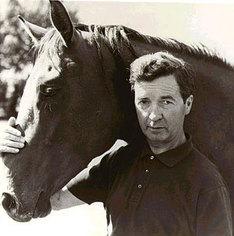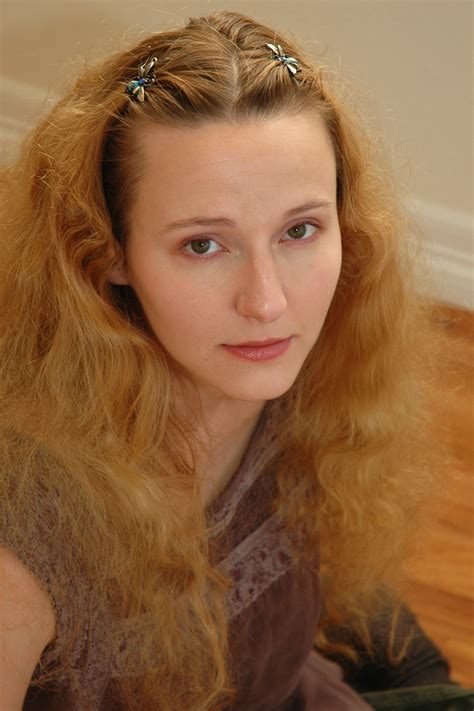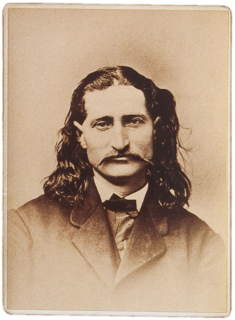A Quote by Gloria Steinem
Like so many women, I was living out the unlived life of my mother, so I wouldn't be her. But the price I paid was that I distanced myself internally. I wasn't as close to her then as I nowadays, in retrospect, wish I had been.
Related Quotes
One of my main wishes in wanting to write about my mother was to explore the impact of her death on my life, explore our relationship, think about the different versions of myself that I was with and without her. I also had the really strong wish to bring her to life for my children, who were born after she was gone.
she, with her affection and her gaiety, had been largely responsible for him having rediscovered the meaning of life, her love had driven him to the far corners of the Earth, because he needed to be rich enough to buy some land and live in peace with her for the rest of their days. It was his utter confidence in this fragile creature, that had made him fight with honor, because he knew that after a battle he could forget all the horrors of war in her arms, and that, despite all the women he had known, only there in her arms could he close his eyes and sleep like a child.
Occasionally, on screen, Barbara [Stanwyck] had a wary, watchful quality about her that I've noticed in other people who had bad childhoods; they tend to keep an eye on life because they don't think it can be trusted. After her mother was killed by a streetcar, she had been raised in Brooklyn by her sisters, and from things she said, I believe she had been abused as a child. She had lived an entirely different life than mine, that's for sure, which is one reason I found her so fascinating. I think her early life was one reason she had such authenticity as an actress, and as a person.
From an early age she had developed the art of being alone and generally preferred her own company to anyone else’s. She read books at enormous speed and judged them entirely on her ability to remove her from her material surroundings. In almost all the unhappiest days of her life she had been able to escape from her own inner world by living temporarily in someone else’s, and on the two or three occasions that she had been too upset to concentrate she had been desolate.
I know also another man who married a widow with several children; and when one of the girls had grown into her teens he insisted on marrying her also, having first by some means won her affections. The mother, however, was much opposed to this marriage, and finally gave up her husband entirely to her daughter; and to this very day the daughter bears children to her stepfather, living as wife in the same house with her mother!
Tereza's mother never stopped reminding her that being a mother meant sacrificing everything. Her words had the ring of truth, backed as they were by the experience of a woman who had lost everything because of her child. Tereza would listen and believe that being a mother was the highest value in life and that being a mother was a great sacrifice. If a mother was Sacrifice personified, then a daughter was Guilt, with no possibility of redress.
I didn't write about my mother much in the third year after she died. I was still trying to get my argument straight: When her friends or our relatives wondered why I was still so hard on her, I could really lay out the case for what it had been like to be raised by someone who had loathed herself, her husband, even her own name.
I particularly recollect your saying one night, after they had been dining at Netherfield, 'SHE a beauty!--I should as soon call her mother a wit.' But afterwards she seemed to improve on you, and I believe you thought her rather pretty at one time." "Yes," replied Darcy, who could contain himself no longer, "but THAT was only when I first saw her, for it is many months since I have considered her as one of the handsomest women of my acquaintance.
Every act of motherhood contains a dual intent, as the mother holds the child close and prepares it to move way from her, as she supports the child and stands it firmly on its own feet, and as she guards it against danger and sends it out across the yard, down by the stream, and across the traffic-crowded highway. Unless a mother can do both - gather her child close and turn her child out toward the world - she will fail in her purpose.





































